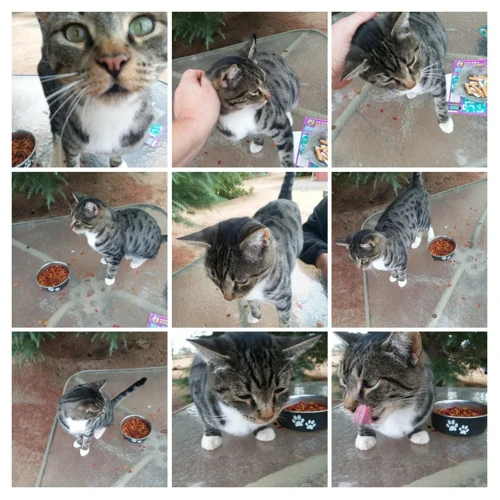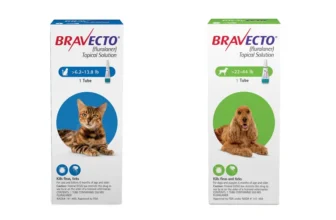Are you a proud owner of a California Spangled cat? Keeping your feline friend healthy and happy is undoubtedly a top priority. However, when it comes to preventing parasites in your cat, do you know what you should be doing? Parasites can cause a wide range of health issues in your cat, such as skin irritation, intestinal problems, anemia, and more. As a concerned cat owner, it’s essential to understand the risks of parasites and learn how to prevent them. In this article, we’ll explore different types of parasites that affect California Spangled cats, prevention tips, common symptoms, and treatment options. Let’s dive in and learn what you need to know to keep your cat parasite-free.
Understanding Parasites in California Spangled Cats

Parasites are one of the most common health concerns for cats, including the California Spangled Cat breed. These tiny organisms live in the body of your feline friend and can cause harm to their overall health. Understanding the different types of parasites that affect California Spangled Cats and the risks associated with them is essential to keeping your pet healthy and happy. With the right prevention tips and timely treatment, parasites can be easily prevented or treated. It is vital for pet owners to take the necessary steps to protect their pets. To learn more about the importance of veterinarian checkups for your Spangled Cat, click here.
Types of Parasites That Affect These Cats
California Spangled cats are no exception to parasites that can infect them. These feline creatures are vulnerable to various types of parasites that can cause health problems. Here are some common parasites that can affect them:
- Fleas: These external parasites are commonly found in cats. They are small, reddish-brown insects that feed on the blood of the host. Fleas can cause itching, anemia, and even transmit tapeworms.
- Ticks: These external parasites can also transmit diseases to cats through their bite. They can cause anemia, tick paralysis, and can even transmit serious diseases such as Lyme disease, Rocky Mountain spotted fever, and ehrlichiosis.
- Ear mites: These are tiny parasites that live in the ear canal of cats. They can cause irritation, inflammation, and itching in the ear canal.
- Ringworm: This is a fungal infection that can infect cats. It causes skin irritation, itchiness, and hair loss. Ringworm is highly contagious and can spread to other cats as well as humans.
- Intestinal parasites: Intestinal parasites such as roundworms, hookworms, and tapeworms, are common in cats. They can cause diarrhea, vomiting and weight loss. These parasites can be transmitted to humans as well.
It is important to keep your California Spangled cat protected and treated against parasites to prevent them from suffering from any of these health conditions. Prevention is key, and regular veterinary care, proper hygiene, high-quality diet, and preventive medications are just some steps pet owners can take to keep their cats parasite-free. Additionally, flea and tick control, regular grooming, and keeping the indoor environment clean can also help.
The Risks of Parasites in Cats
Parasites can be dangerous for your California Spangled cat’s health, and there are several risks associated with parasitic infestations. These risks can be both internal and external.
| Risks of Parasites in Cats |
|---|
| Illness and Disease |
| Parasites can cause health problems that range from mild discomfort to severe illness and even death. Internal infestations can lead to anemia, weight loss, vomiting, diarrhea, and other digestive problems. External pests can cause skin irritation, infection, and allergic reactions. |
| Spread of Infection to Other Pets and Humans |
| Parasites can transmit diseases and infections to other pets in the household, as well as humans. Some parasites, such as fleas and ticks, can also carry diseases that affect humans, such as Lyme disease and Rocky Mountain spotted fever. It is important to keep your California Spangled cat parasite-free to avoid transmission of diseases. |
| Expensive Medical Costs |
| The cost of treating a parasitic infestation can be expensive. In some cases, the pet may require extensive medical care, medications, and ongoing treatments. The cost of preventative medications and regular veterinary check-ups may be far less expensive than treating a severe infestation. |
It is important to be aware of the potential risks associated with parasites in cats and take steps to prevent infestations. Prevention starts with regular veterinary care, proper hygiene and sanitation, a high-quality diet, and the use of parasite preventive medications. Implementing these prevention tips can help keep your California Spangled cat healthy and parasite-free.
Regular veterinary tests can also provide additional information about any potential health risks or parasite infestations your cat may have. Additionally, it is important to keep up with regular dental hygiene to prevent oral infections. You can read more about dental tips in our article on California Spangled Cat Dental Tips. Obesity can also lead to health problems in cats, so check out our tips on Preventing Obesity in California Spangled Cats with Diet and Exercise. Regular flea and tick prevention are also important to keep your cat parasite-free. Find out more in our article on Cali Spangled Cat Flea and Tick Prevention.
Prevention Tips to Keep Your California Spangled Cat Parasite-Free

Ensuring that your California Spangled Cat remains free of parasites is crucial to their overall health and wellbeing. Parasites not only cause physical discomfort and pain but can also increase the chances of your feline friend contracting other illnesses. To keep them healthy, you need to take proactive measures to prevent parasite infestations. The following tips will help you keep your cat parasite-free and happy.
Regular Veterinary Care
Regular veterinary care for your California Spangled cat is essential in preventing and managing parasites. You should always schedule routine check-ups for your cat, especially if they are prone to parasites. During the check-up, the vet will examine your pet and administer preventative medications or treat any parasite infestations. Keeping track of these appointments can be tedious, so use an HTML table to organize your vet visit schedule.
| Appointment Date | Type of Appointment |
|---|---|
| June 1st, 2022 | Annual Check-up |
| September 15th, 2022 | Parasite Prevention Medication |
| January 5th, 2023 | Follow-up Check-up |
Not only do routine check-ups help prevent parasites, but they can also detect and treat them at an early stage. This can save your cat from experiencing severe symptoms and medical complications.
During your cat’s regular check-up, the vet may perform a physical examination, a fecal exam, and a blood test. These tests help screen for parasites such as worms, ticks, and fleas. If the vet determines that your cat has a parasite infestation, they will administer the appropriate treatment.
Following your vet’s advice and recommendations is crucial in preventing and treating the parasites that are common in California Spangled cats. They may suggest additional medications or lifestyle changes, such as flea and tick control or dietary adjustments.
Remember, prevention is always better than cure. Regular veterinary care is a proactive step that you can take to prevent parasites in your California Spangled cat. Make it a priority to schedule routine check-ups with your vet and keep your cat healthy and happy.
Proper Hygiene and Sanitation
Good hygiene and sanitation practices are essential in preventing parasites from infecting your California Spangled cat. This includes keeping their environment clean and free from any potential breeding grounds for parasites. Here are some tips on how to maintain proper hygiene and sanitation for your furry friend:
| Practice | Importance |
|---|---|
| Clean the litter box frequently: | Having a clean litter box is crucial in preventing your cat from getting infected with parasites like roundworms and tapeworms. These parasites are commonly found in feces and can easily be ingested by cats if the litter box is not properly cleaned. |
| Wipe your cat’s paws: | Cats can easily pick up parasites like fleas and ticks when they go outside. By wiping your cat’s paws with a damp cloth after they come inside, you can remove any unwanted pests before they have a chance to infect your cat. |
| Wash your cat’s bedding: | Cats spend a lot of time lying on their bedding, which can easily become a breeding ground for parasites. It’s important to wash your cat’s bedding frequently in hot water to kill any parasites or their eggs that may be present. |
| Vacuum and clean floors: | Parasites like fleas and ticks can easily infest your carpets and flooring. By regularly vacuuming and cleaning your floors, you can remove any potential breeding grounds for parasites. |
| Keep outdoor areas clean: | If your cat goes outside, it’s important to keep the outdoor areas clean and free from potential breeding grounds for parasites. This includes regularly removing any feces or debris that may be present in your yard. |
Remember that good hygiene and sanitation practices are essential in preventing parasites from infecting your California Spangled cat. By following these tips, you can help keep your cat healthy and parasite-free.
High-Quality Diet
Feeding your California Spangled cat a high-quality diet is essential for preventing parasites. A high-quality diet provides all the necessary nutrients, vitamins, and minerals that your cat needs to stay healthy and strong. It helps boost their immune system, making them less susceptible to parasites and other health issues. Here are some tips to ensure your cat is getting a high-quality diet:
- Choose high-quality cat food: Make sure you choose cat food that contains high-quality ingredients and meets your cat’s specific nutritional needs.
- Avoid cheap, low-quality cat food: Cheap cat food may contain filler ingredients that offer little nutritional value and can actually harm your cat’s health in the long run.
- Avoid feeding your cat raw or undercooked meat: Feeding your cat raw or undercooked meat increases their risk of contracting parasitic infections such as Toxoplasma gondii.
- Provide fresh, clean water: Make sure your cat always has access to fresh, clean water. This helps keep them hydrated and flushes out any toxins or parasites in their system.
- Avoid feeding your cat table scraps: Table scraps may contain ingredients that are harmful or toxic to your cat. Stick to feeding them a balanced diet of high-quality cat food.
When choosing cat food, look for brands that have been formulated specifically for California Spangled cats or for cats in general. These foods often contain a balanced blend of protein, carbohydrates, healthy fats, vitamins, and minerals. Check the label to ensure that the cat food contains taurine, which is an essential amino acid that cats cannot produce on their own and must be included in their diet.
In addition to choosing high-quality cat food, you can also supplement your cat’s diet with treats and supplements that help support their immune system and prevent parasites. Talk to your veterinarian about the best options for your cat’s specific needs. By feeding your California Spangled cat a high-quality diet, you can help keep them healthy and protected against parasites.
Use Parasite Preventive Medications
Parasite preventive medications are an essential tool in the fight against parasites in California Spangled cats. These medications can be ingested orally, injected, or applied topically to the skin, depending on the type of medication and the type of parasite it is designed to target.
The Benefits of Preventive Medications
Using preventive medications regularly can help protect your cat from a wide range of parasites, including fleas, ticks, heartworms, roundworms, hookworms, and more. These medications work by either killing parasites outright or preventing them from reproducing, which helps to control infestations. By using parasite preventive medications, you can significantly reduce the risk of your cat developing health problems related to parasites, including disease transmission and anemia.
Types of Preventive Medications
There are several types of preventive medications available for cats, including:
| Type of Medication | Description | Benefits |
|---|---|---|
| Flea and Tick Preventives | Topical and oral medications designed to kill and prevent fleas and ticks from infesting your cat. | Helps prevent skin irritation, anemia, and the transmission of diseases |
| Heartworm Preventives | Oral medications designed to prevent heartworm infection by killing the larval stages of the worms. | Protects against heartworm disease, which can be fatal |
| Dewormers | Oral medications designed to kill and prevent various intestinal worms, including roundworms, hookworms, and tapeworms. | Helps prevent anemia, malnutrition, and other complications associated with internal parasites |
Choosing the Right Medication
Choosing the right parasite preventive medication for your cat can be challenging, as there are many different options available. It is best to consult with your veterinarian to determine which medication is best suited for your cat’s unique needs and lifestyle. Factors to consider include your cat’s age, weight, health status, and exposure to parasites in your area.
Conclusion
Using parasite preventive medications is an essential part of keeping your California Spangled cat healthy and free from parasites. By choosing the right medication and using it according to your veterinarian’s instructions, you can help prevent serious health problems and keep your cat happy and comfortable.
Avoid Contact with Infected Animals
One effective way to prevent parasite infestations in your California Spangled cat is to avoid contact with infected animals. This includes not only other cats, but also wild animals that may carry parasites.
Here are some tips to help you avoid contact with infected animals:
- Avoid letting your cat roam outside where they may come into contact with infected animals. Keep them indoors as much as possible.
- If your cat does go outside, supervise their playtime and keep them away from stray cats or wildlife.
- Dispose of your cat’s litter carefully to avoid contamination from infected animal feces.
- Keep your yard free of debris and trash, which can attract wild animals, and prevent your cat from hunting prey which could have parasites.
- If you have other pets, make sure their parasite prevention is up-to-date.
- If you find an infected animal in your yard, call your local animal control to have it safely removed.
By taking these precautions, you can greatly reduce the risk of your California Spangled cat becoming infected with parasites from other animals. Remember that prevention is key when it comes to parasite control, so do your best to keep your cat safe and healthy.
Practice Flea and Tick Control
Flea and tick infestations are common problems in California Spangled cats. These pesky parasites feed on the blood of your cat and can cause severe itching, skin irritation, and in some cases transmit diseases. It’s essential to practice flea and tick control to prevent these infestations from occurring. Here are some helpful tips on flea and tick control for your California Spangled cat:
| Tip | Description |
|---|---|
| Use flea and tick preventative measures | Using flea and tick preventative measures such as a monthly flea treatment can be an effective way of controlling these parasites. These treatments come in different forms such as oral medication, shampoos, and topical spot-on treatments. Always consult your veterinarian to choose the right type of product for your cat. |
| Regularly clean your cat’s bedding | Fleas and ticks can lay eggs in your cat’s bedding and other areas where they spend most of their time. It’s essential to vacuum your house regularly and wash your cat’s bedding in hot water every week to kill any fleas, ticks, or eggs that may be hiding. |
| Maintain a clean indoor environment | Keeping your house clean and tidy can prevent flea and tick infestations. It’s essential to regularly vacuum carpets, rugs, and furniture to remove any flea eggs or larvae that may be hiding. Additionally, clean pet toys and litter boxes regularly to avoid the buildup of flea dirt and eggs. |
| Avoid walking your cat in areas with high flea and tick populations | It’s essential to avoid walking your cat in areas where there may be a high population of fleas and ticks such as wooded areas, tall grasses, and fields. Additionally, avoid contact with other animals that may be infested with these parasites as they can easily transfer them to your cat. |
Remember, preventing flea and tick infestations not only helps protect your California Spangled cat’s health, but it also helps maintain a clean and healthy home environment for you and your family. By following these flea and tick control tips, you can ensure your cat is protected against these pesky parasites.
Keep Indoor Environs Clean
Maintaining a clean environment is crucial for preventing parasites in your California Spangled cat. Regular cleaning and disinfecting of your home can greatly reduce the chances of parasite infestation. Here are some tips to keep your indoor environs clean and safe for your feline friend:
- Vacuum frequently: Dust, dirt, and other debris can accumulate on your carpets, rugs, and furniture. Parasites such as fleas and ticks can breed in this environment, causing infestation in your cat. Regular vacuuming will help remove any debris and prevent flea and tick infestations.
- Wash your cat’s bedding: Your cat’s bedding can easily become a breeding ground for parasites. Wash their bedding weekly in hot water to kill any parasites that may be lurking.
- Clean litter boxes: Litter boxes should be cleaned daily to prevent any fecal matter and urine buildup. This will not only keep your home odor-free but also prevent parasites from taking up residence.
- Disinfect surfaces: Use a disinfectant to clean your home surfaces regularly. Wipe down counters, tabletops, and floors with disinfectant to kill any parasites that may be present.
- Get rid of clutter: Cluttered spaces can provide an ideal hiding spot for parasites. Regularly clean and organize your home to help prevent parasite infestations.
Keeping your home clean is an effective way to prevent parasite infestations in your California Spangled cat. Incorporate a regular cleaning routine to keep your home and cat clean and healthy.
Regular Grooming Sessions
Maintaining the hygiene and grooming of your California Spangled cat is crucial in preventing parasites. Regular grooming sessions not only keep your cat looking its best, but it is also a good way to check for parasites and prevent infestations.
How often should you groom your cat?
The frequency of grooming depends on the length and type of fur. For cats with longer hair, daily brushing is recommended to prevent matting and tangling. Short-haired cats may only need to be brushed once or twice a week. It is important to establish a grooming routine that works best for your cat’s individual needs.
Tools for grooming:
Having the proper tools is essential in making the grooming session comfortable for both you and your cat. Here are some grooming tools that you might need:
| Grooming Tool | Function |
|---|---|
| Slicker Brush | Removes loose hair and tangles |
| Comb | Detangles and smooths fur |
| Nail Clippers | Trim nails to prevent overgrowth and ingrown nails |
| Ear Cleaner | Cleans and prevents ear infections |
Steps for grooming:
Grooming your cat is not just about brushing its fur. It also includes checking for parasites, cleaning its ears, and trimming its nails. Here are some basic steps for a grooming session:
- Brush your cat’s fur with a slicker brush to remove loose hair and tangles.
- Use a comb to detangle and smooth out the fur.
- Clean your cat’s ears using a cotton ball or ear cleaning solution.
- Trim your cat’s nails if needed, to prevent overgrowth and ingrown nails.
- Check your cat’s skin for any signs of parasites like fleas or ticks.
- Bathe your cat if necessary, using a cat-specific shampoo.
By making regular grooming sessions a part of your cat’s routine, you can ensure that your California Spangled cat stays healthy and free from parasites. In case you notice any parasites or unusual symptoms, contact your veterinarian for proper treatment.
Symptoms and Treatment for Parasites in California Spangled Cats
As a responsible pet owner, it’s important to be vigilant in preventing parasites in your beloved California Spangled cat. However, despite our best efforts, sometimes these pesky critters still find a way to invade our feline friends. It’s important to be able to identify the symptoms of parasitic infestations and to have knowledge of effective treatment options. In this section, we will take a closer look at the signs of parasitic infections in California Spangled cats and the various treatments available to help get rid of them. So, if you suspect your furry companion may have parasites, keep reading to learn more.
Common Symptoms of Parasites in Cats
Parasites can cause a variety of symptoms in California Spangled cats. It’s important to be aware of these symptoms in order to detect any potential issues early on and seek proper treatment. Here are some of the common symptoms of parasites in cats:
| Symptom | Description |
|---|---|
| Weight Loss | If your California Spangled cat is losing weight without explanation, it’s possible that parasites are at work. Certain parasites, such as tapeworms, can absorb nutrients from the cat’s intestines which leads to weight loss. |
| Vomiting and Diarrhea | Parasites such as worms or giardia can cause digestive issues in cats, leading to vomiting and diarrhea. These symptoms can be especially dangerous for kittens or older cats. |
| Anemia | Fleas, ticks, and other blood-sucking parasites can cause anemia in cats, which is a condition that occurs when the body doesn’t produce enough red blood cells. |
| Scratching or Biting | If your California Spangled cat is constantly scratching or biting at their skin, it’s possible that they have some type of external parasite, such as fleas or mites. These parasites can cause intense itching and discomfort. |
| Visible Parasites | In some cases, you may be able to visually identify parasites on your cat. For example, you may see small black fleas moving around on your cat’s fur or notice small white worms in their stool. |
If you notice any of these symptoms in your California Spangled cat, it’s important to take them to the veterinarian as soon as possible. The vet can perform tests to determine the type of parasite and provide appropriate treatment. It’s crucial to treat parasitic infections promptly to prevent more serious health complications down the line.
Treatments Options for Parasites in Cats
When it comes to treating parasites in California Spangled cats, the treatment plan will depend on the type of parasite involved. Here are some common treatment options for various parasites:
| Parasite | Treatment |
|---|---|
| Fleas and Ticks | There are various treatments available for fleas and ticks, including topical medications, oral medications, and flea collars. It is essential to follow your veterinarian’s advice on which medication to choose and how often to administer it. |
| Roundworms and Hookworms | These parasites are usually treated using deworming medications prescribed by a veterinarian. Treatment may involve several rounds of medication over several weeks or months, depending on the severity of the infestation. |
| Tapeworms | Treating tapeworms typically involves administering a deworming medication prescribed by a veterinarian, but it may also involve addressing the underlying cause such as fleas or infected prey animals. |
| Heartworms | Treatment for heartworms can be quite extensive and may involve hospitalization, medication, and specialized care from a veterinarian. Prevention is key, so it is important to administer monthly heartworm medication as well as getting your cat regularly tested by a vet. |
It is critical to seek advice and treatment from a veterinarian as soon as you suspect that your California Spangled cat has been infected with parasites. Delaying treatment can lead to severe health complications and even death in severe cases. With proper treatments and preventive measures in place, you can keep your feline friend healthy, happy, and free from parasites.
Conclusion
In conclusion, preventing parasites in your California Spangled cat is crucial for their overall health and well-being. While some parasites may be harmless, others can cause severe health issues and even be fatal if left untreated. It’s important to understand the different types of parasites that can affect your cat and the risks associated with them. By implementing preventive measures such as regular veterinary care, proper hygiene and sanitation practices, high-quality diet, and the use of parasite preventive medications, you can minimize the risks substantially.
In addition, it’s essential to avoid contact with infected animals when possible and practice flea and tick control. Keeping your indoor environs clean and scheduling regular grooming sessions can further promote a healthy and parasite-free lifestyle for your cat.
If you notice any symptoms of parasites in your California Spangled cat, such as excessive scratching, vomiting, diarrhea, or lethargy, seek veterinary care immediately. Early detection and treatment can make all the difference and prevent long-term health issues.
In summary, by taking the necessary steps to prevent parasites and seeking prompt treatment when needed, you can help ensure your California Spangled cat is healthy and happy for years to come. Remember that prevention is key, and by being proactive, you can provide your feline companion with the best possible care.
Frequently Asked Questions
How do cats become infected with parasites?
Parasites can enter a cat’s body through contaminated food and water, contact with infected animals, or exposure to contaminated environments.
What are the most common types of parasites that affect California Spangled cats?
The most common types of parasites that affect California Spangled cats are fleas, ticks, roundworms, and hookworms.
Why is preventive care important in keeping cats parasite-free?
Preventive care is crucial in keeping cats parasite-free because it reduces the chances of infection, which can cause serious health problems and discomfort for the cat.
Can cats transmit parasites to humans?
Yes, cats can transmit certain parasites to humans through direct contact or exposure to contaminated environments.
What are some signs that my California Spangled cat may have a parasite infection?
Some signs that your California Spangled cat may have a parasite infection are vomiting, diarrhea, weight loss, lethargy, and changes in appetite.
What should I do if my cat has a parasite infection?
If you suspect that your cat has a parasite infection, it is important to consult with a veterinarian right away to determine the type of parasite and appropriate treatment.
Can I prevent parasites with natural remedies?
While some natural remedies may have some effect on certain parasites, it is not a reliable method for preventing parasite infections. Consult with your veterinarian for the best prevention methods.
How can I practice flea and tick control safely?
You can practice flea and tick control safely by using veterinarian-approved methods, such as topical treatments, and following the product label instructions carefully.
Can indoor cats still get parasite infections?
Yes, indoor cats can still get parasite infections through exposure to contaminated environments or contact with infected animals.
How often should I bring my California Spangled cat to the veterinarian for preventive care?
You should bring your California Spangled cat to the veterinarian at least once a year for preventive care, but frequency may depend on your cat’s age and health status.







